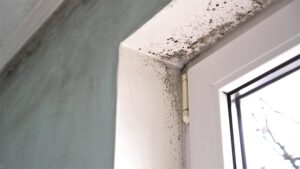The Impact of Spring Allergens
on Indoor Air Quality

As the winter chill fades away and spring brings warmer temperatures and blooming flowers, it also ushers in a less welcome guest: allergens. Pollen, mold spores, and other allergens that are prevalent in the spring can have a significant impact on indoor air quality, leading to discomfort and health issues for many people. Understanding the sources of these allergens and how to minimize their impact can help you breathe easier and enjoy the season to its fullest.
Sources of Spring Allergens
- Pollen: Trees, grasses, and weeds release pollen into the air to fertilize other plants. This fine powder can easily find its way indoors through open windows and doors, on clothing, and on pets.
- Mold: Spring showers and warmer temperatures create the perfect environment for mold growth. Mold can thrive in damp areas such as basements, bathrooms, and kitchens, as well as in areas with poor ventilation.
- Dust Mites: Dust mites are microscopic creatures that feed on skin flakes and thrive in warm, humid environments. They can be found in bedding, upholstered furniture, and carpeting.
Effects of Spring Allergens on Indoor Air Quality
Exposure to spring allergens can trigger allergic reactions in many people, including sneezing, coughing, congestion, and itchy, watery eyes. For those with asthma, allergen exposure can also exacerbate symptoms and lead to difficulty breathing.
Tips for Improving Indoor Air Quality
- Keep Windows and Doors Closed: While it may be tempting to let in the fresh spring air, keeping windows and doors closed can help prevent pollen and other outdoor allergens from entering your home.
- Use an Air Purifier: Consider using a high-efficiency particulate air (HEPA) filter air purifier to help remove allergens from the air.
- Maintain Proper Humidity Levels: Use a dehumidifier to keep humidity levels below 50% to help prevent mold growth.
- Clean Regularly: Regular cleaning, including vacuuming carpets and upholstery, can help reduce allergens such as dust mites.
- Change Air Filters: Regularly change the filters in your heating and cooling systems to help remove allergens from the air.
Spring allergens can have a significant impact on indoor air quality, leading to discomfort and health issues for many people. By understanding the sources of these allergens and taking steps to minimize their impact, you can help improve the air quality in your home and enjoy a healthier, more comfortable spring season.
